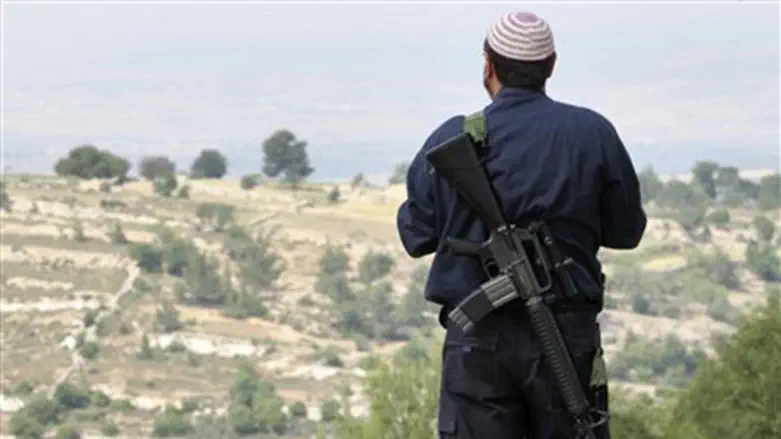
(For part I, click here)
The Israelis in Judea and Samaria have the heroic sense of creating a new life from nothing. But also the loneliness of coping with an enemy without a uniform, like their colleagues, the European anti-Semites. Their existence is a big “credo quia absurdum”. The “settlers” have the legitimacy of having fought a battle of a minority to remain Jews and also of being a living tribute to the six million Jews who perished in the Shoah. Among the settlers there is a very strong reading of history and literature in which they recount the destruction perpetrated against the Jewish people by the Assyrian kings, the Romans, the Inquisition, the Crusades, the Holocaust, the Islamic world.
The "real" State of Israel, those in the Tel Aviv “bubble,” watch them with sadness and apprehension, convinced that those Jews will have to be taken away or abandoned for not having supported a “binational state”. Then there is the leftist Israeli culture that hates them. Just think about that article in Haaretz newspaper signed by Professor Zeev Sternhell, where the famous political scientist invited the Palestinians to fire on settlements and not on the "good Israelis" living on the coast.
“This is our ancient homeland, we did not we come here for Tel Aviv, the shtetl or because of the Holocaust, but because it is our land,” I was told by General Gershon Hacohen, who had the thankless task of evacuating eight thousand Jews from Gaza. Without Jerusalem, Hacohen told me, Tel Aviv is merely “another Brooklyn”. During the Lebanon war of 1982, Hacohen wrote the famous “Letters from the Front” to his wife, which were published by Haaretz. “We can not protect Israel if rockets are placed on the mountains of Judea and Samaria. And the soldiers alone are not enough: every day there are more than 10,000 soldiers in the territories compared to 500,000 Jews. What is better, to enter Nablus in a raid or launching a massive military operation as in Gaza? Every night, thanks to the settlements, the army can make an incursion into Nablus and Ramallah and destroying a weapons factory. If Israel returns to the 1967 borders there will be a destructive war and thousands of Jewish refugees. The EU demands that we return to a ghetto in Tel Aviv. Will they put sanctions on us? So what, we will survive”.
General Yossi Kuperwasser, the former director of the Ministry of Strategic Affairs and of the Army Research Section, explained to me that “each settlement today has a value and is part of the control system of the territories. Settlements are all strategic, these control important areas in which terrorism is born. The 1967 lines are not defensible, and Israel needs that settlements to be included in a future agreement with the Palestinians, such as those in the Jordan Valley”. And the ideological "settlements" in proximity to Arab cities? “Even the most isolated, far outside the barrier, are important today. Some of the 'settlements' that overlook Nablus are fundamental to control the territory”.
Yossi Dagan is the head of the Shomron (Samaria) Regional Council: “A Jew can not occupy Judea”, he told me. “Between the Mediterranean and Jordan there are 70 kilometers. The mountains of Judea and Samaria occupy 55 kilometers of that width. Can we reduce Israel to fifteen kilometers, as wide as a Parisian boulevard?”. During a session of the Israeli parliament, security officials recently read the names of the most endangered and dangerous 'settlements' to live in: Elon Moreh, Otniel, Carmei Tzur and Negohot. This is where I want to go to understand the territories, what the Jews there have to endure to keep and protect the land and the state.